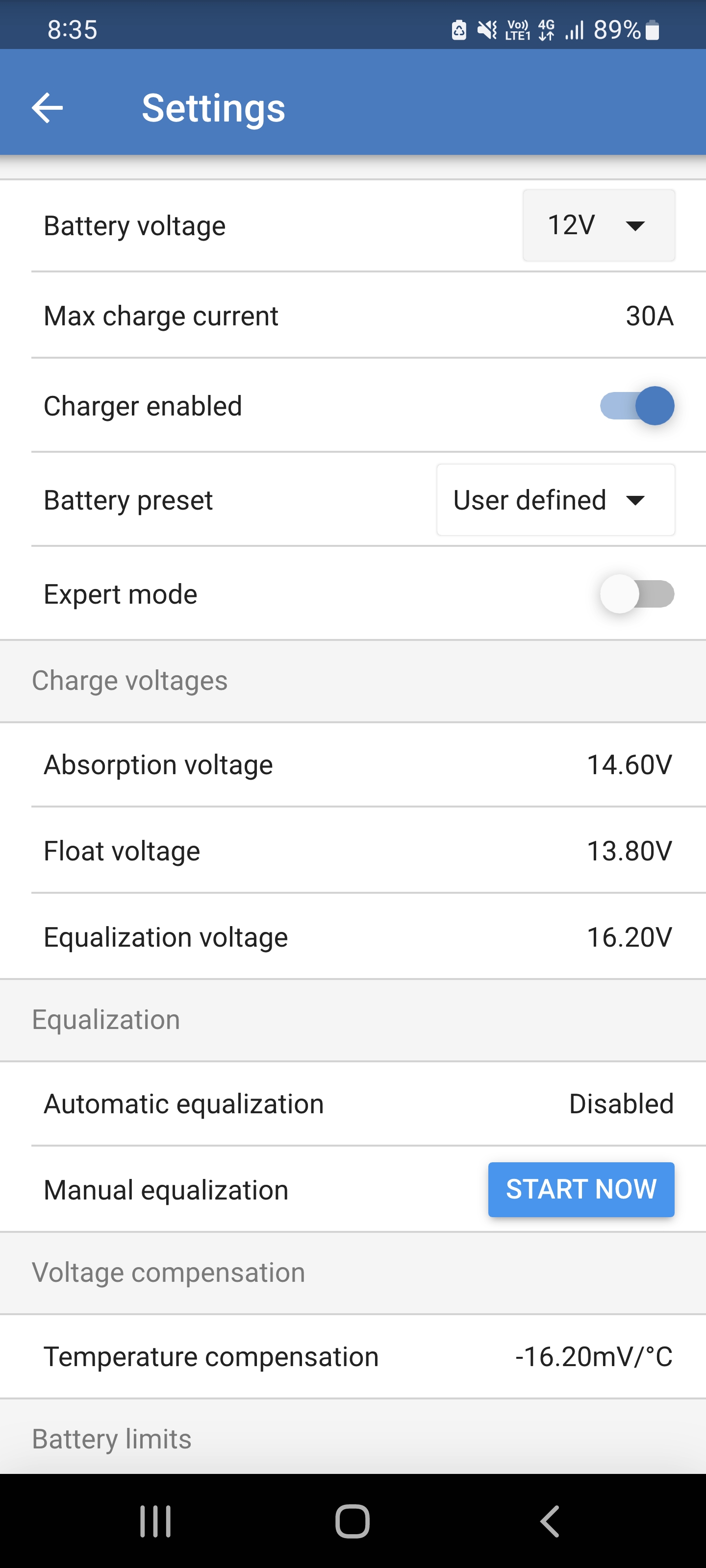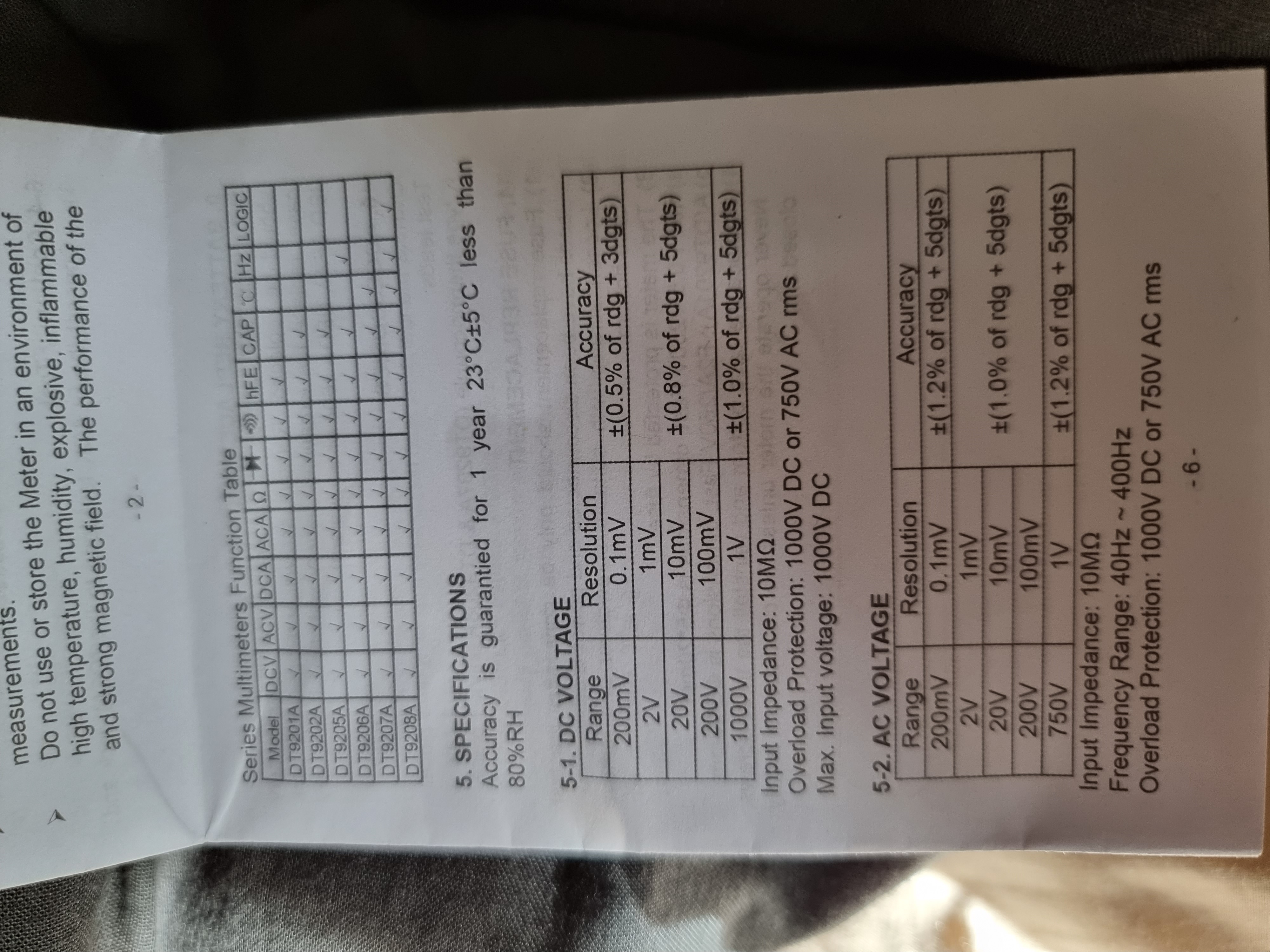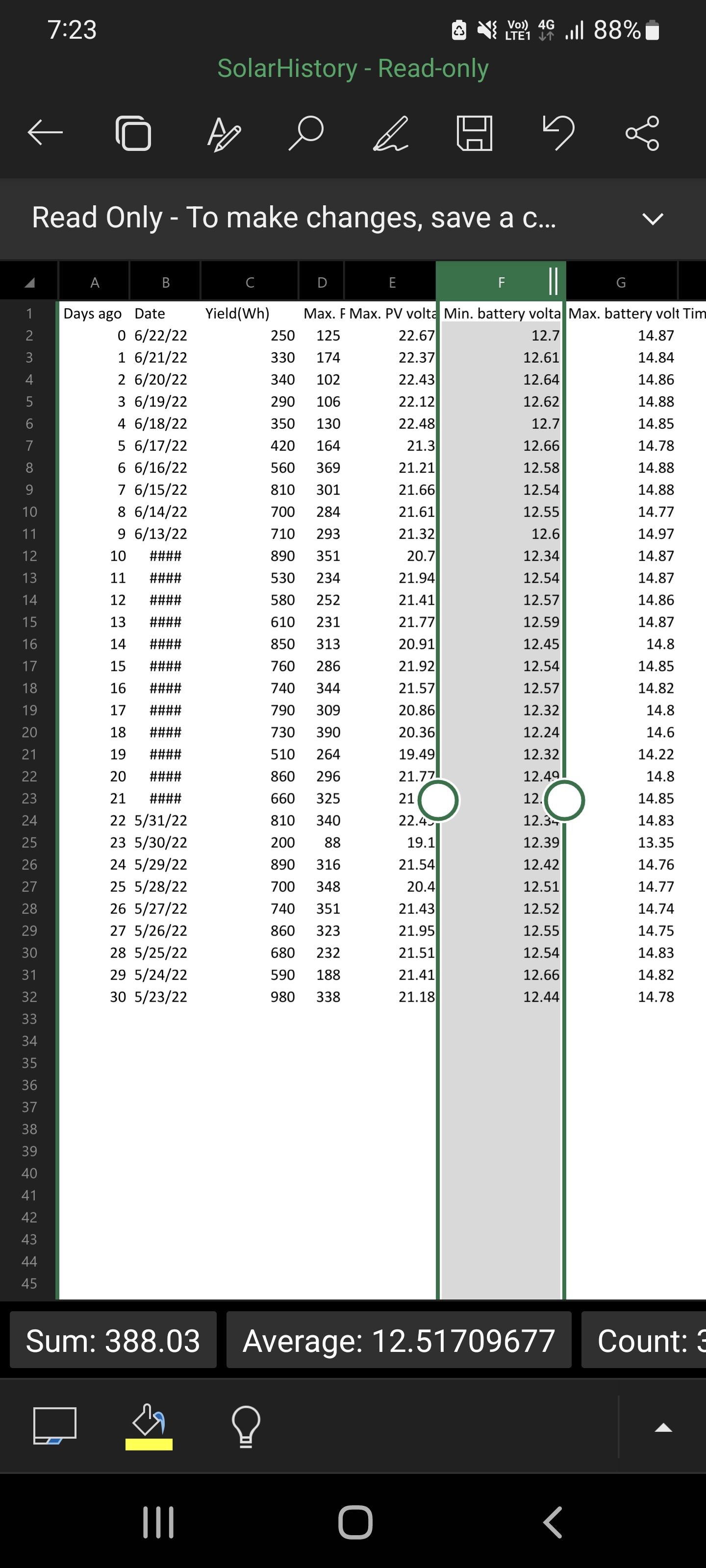Hi there,
I have searched this fforum looking for answers or other users who have had a similar issue and have found some reports but no answers.
I have a 100/30 MPPT with a Smart Battery Sense connected to my AGM battery bank and I've noticed the MPPT na smart battery sense seem to be reading 0.2-0.3V higher than my battery bank according to two different multimeters.
I specifically noticed this last night when the Victron unit specified my battery voltage with a small load applied was sitting at 12.61V, yet when checking with my multimeter my battery bank was sitting on 12.32V.
I purchased the Smart Battery Sense due to noticing an error in the voltage between batteries and the MPPT, the Smart Battery Sense helped get it closer, but it was never exact.
After living off the grid ina caravan for a bit over a year with this setup, I am noticing my batteries don't seem to be holding charge as good as they first did and I suspect this is due to me having accidentally run them to low as a result of the variance from the Smart Battery Sense and the MPPT.
The lowest I had taken my batteries down to was 12.24v (according to the Victron app) which would mean the actual Battery Voltage would have been close to 11.9V or 12V - Much lower that I have ever planned to discharge the batteries.
According to both MPPT and Smart Battery Sense both units are running up to date/latest firmware.
As a half assed workaround, would changing the MPPT's charging parameters to be 0.25V higher allow the batteries to reach full charge (I assume it will) but don't want to cook the batteries at the same time?
Any advice as to what the cause and fix could be.
I am running 6 gauge wire about 800mm from MPPT to batteries so voltage drop should be fairly minimal and the Smart Battery Sense should be providing an accurate reading anyway.
Thanks,
Glenn.



